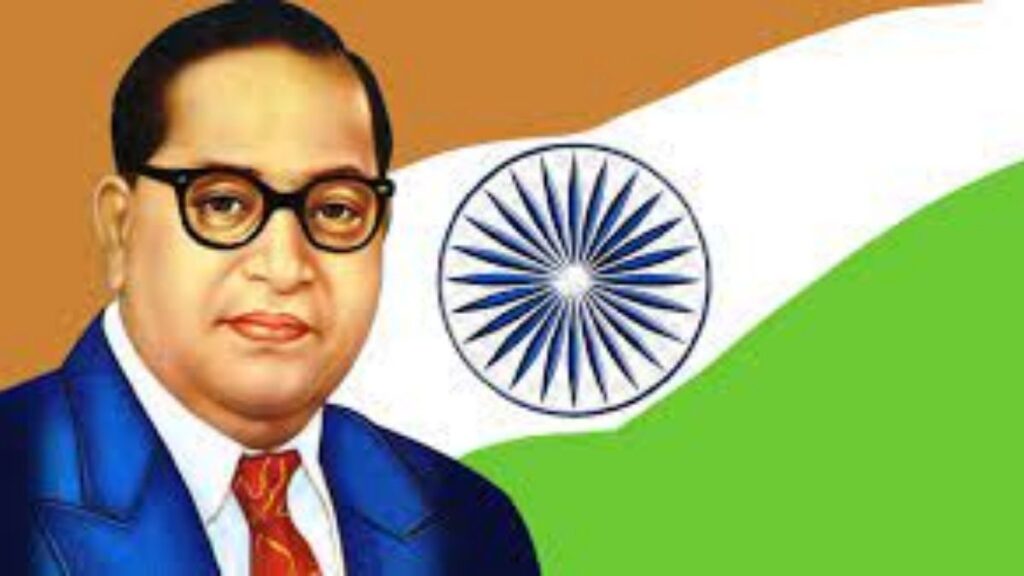Dr. Bhimrao Ramji Ambedkar, affectionately known as Babasaheb, was a visionary leader whose relentless pursuit of social justice and equality has left an indelible mark on Indian society. Every year, on April 14th, India commemorates his birth anniversary as Dr. Ambedkar Jayanti, celebrating his monumental contributions to the nation’s socio-political fabric. This article delves into the significance of Dr. Ambedkar Jayanti, exploring his life, legacy, and the contemporary relevance of his teachings.
Early Life and Education of Dr. B.R. Ambedkar
Born on April 14, 1891, in the town of Mhow (now Dr. Ambedkar Nagar) in Madhya Pradesh, Bhimrao Ambedkar was the youngest of fourteen children in a Mahar family, a community considered “untouchable” in the rigid caste hierarchy of India. Despite facing severe social discrimination, Ambedkar’s father, Ramji Maloji Sakpal, who served as a Subedar in the British Indian Army, instilled the value of education in his children.
Ambedkar’s academic journey was marked by resilience and brilliance. He became the first from his community to enroll at Elphinstone High School in Mumbai. His thirst for knowledge led him to pursue higher studies abroad, earning doctorates in economics from both Columbia University and the London School of Economics. These academic achievements equipped him with a profound understanding of socio-economic issues, laying the foundation for his future endeavors in social reform and policy-making.
Dr. Ambedkar’s Role in Drafting the Indian Constitution
In the aftermath of India’s independence, Dr. Ambedkar was appointed as the Chairman of the Drafting Committee of the Constituent Assembly, entrusting him with the monumental task of framing the nation’s Constitution. His vision was clear: to establish a legal framework that upholds justice, liberty, equality, and fraternity. Ambedkar was instrumental in formulating laws that promote social justice, equality, and fundamental rights, advocating for the abolition of untouchability and caste-based discrimination.

Social Reforms and Movements Led by Dr. Ambedkar
Beyond his constitutional contributions, Dr. Ambedkar was a tireless advocate for the rights of marginalized communities. In 1924, he founded the Bahishkrit Hitakarini Sabha (Association for the Improvement of the Condition of the Depressed Classes) with the motto “Educate, Agitate, Organize.” The organization aimed to promote education and socio-economic improvement for the marginalized.
Ambedkar led several movements against untouchability, emphasizing the importance of education as a tool for social upliftment. His efforts were pivotal in initiating affirmative action policies and promoting liberal constitutionalism and democracy in India.
Ambedkar Jayanti: Celebrations and Observances
Ambedkar Jayanti is celebrated with great enthusiasm across India and by the Indian diaspora worldwide. The day is marked by processions, seminars, and cultural events honoring Dr. Ambedkar’s legacy. Floral tributes are offered at statues and memorials dedicated to him, notably at Chaitya Bhoomi in Mumbai and Deeksha Bhoomi in Nagpur. In 2020, the first online Ambedkar Jayanti was celebrated, adapting to the constraints of the global pandemic.
In Maharashtra, December 6th, the day of Ambedkar’s demise, is observed as Mahaparinirvan Diwas, with public holidays declared in his honor.
Global Recognition and Observance
Dr. Ambedkar’s influence transcends national boundaries. His birth anniversary is observed in various countries with significant Indian communities. For instance, the city of Burnaby in Canada declared April 14 as “Dr. B.R. Ambedkar Day of Equality.” Such global acknowledgments underscore the universal relevance of his teachings on equality and human rights.
Dr. Ambedkar’s Vision for Equality and Its Relevance Today
Dr. Ambedkar’s advocacy for social justice continues to resonate in contemporary society. His emphasis on education as a means of empowerment remains pertinent, inspiring ongoing efforts toward an inclusive and equitable society. Ambedkar’s vision, reflected in India’s Constitution, emphasizes individual rights, social justice, and democratic change, making modern India more inclusive and progressive.
Conclusion
Dr. Ambedkar Jayanti serves as a poignant reminder of the enduring struggle for equality and human rights. Reflecting on his life and contributions motivates individuals and society to uphold the values of justice, liberty, equality, and fraternity. As we commemorate his birth anniversary, let us commit to fostering a society free from discrimination and prejudice, embodying the ideals that Dr. Ambedkar championed throughout his life.
FAQs About Ambedkar Jayanti
1. What is Ambedkar Jayanti?
Ambedkar Jayanti, also known as Bhim Jayanti, is observed annually on April 14th to commemorate the birth anniversary of Dr. Bhimrao Ramji Ambedkar. He was a prominent Indian jurist, economist, social reformer, and the principal architect of the Indian Constitution.
2. Why is Ambedkar Jayanti celebrated on April 14th?
Dr. B.R. Ambedkar was born on April 14, 1891. The day is celebrated to honor his contributions to Indian society, particularly his efforts toward social justice and equality.
3. Is Ambedkar Jayanti a public holiday in India?
Yes, Ambedkar Jayanti is a public holiday in several Indian states and union territories. The Government of India declared April 14th as a public holiday in 2015.
4. How is Ambedkar Jayanti celebrated?
The day is marked by processions, seminars, and cultural events honoring Dr. Ambedkar’s legacy. People pay tributes at his statues and memorials, notably at Chaitya Bhoomi in Mumbai and Deeksha Bhoomi in Nagpur.
5. What is the significance of Ambedkar Jayanti?
Ambedkar Jayanti serves as a reminder of Dr. Ambedkar’s relentless fight against social discrimination and his pivotal role in drafting the Indian Constitution. It underscores the values of equality, justice, and human rights.
6. Are there any international observances of Ambedkar Jayanti?
Yes, Ambedkar Jayanti is observed in various countries with significant Indian communities. For instance, the city of Burnaby in Canada declared April 14 as “Dr. B.R. Ambedkar Day of Equality.”
7. What are some of Dr. Ambedkar’s notable contributions?
Dr. Ambedkar was the principal architect of the Indian Constitution and served as India’s first Law Minister. He was a staunch advocate for the rights of marginalized communities and played a crucial role in promoting social reforms to eradicate caste-based discrimination.
8. How can individuals participate in Ambedkar Jayanti celebrations?
Individuals can participate by attending local events, seminars, and cultural programs organized in honor of Dr. Ambedkar. Engaging in discussions about his teachings, reading his works, and contributing to social causes aligned with his vision are also meaningful ways to commemorate the day.



